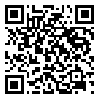In vitro production is one of the fast and low-cost methods for mass propagation of horticultural crops. But, in vitro plantlets are more sensitive than others and need more adaptation against climatological factors. In order to investigate the symbiosis effects of two species of mycorrhizal fungi on growth and yield of sweet pepper (Capsicum annum L.) cv Inspiration, under drought-stress conditions, two separate experiments were conducted. In the first experiment, effects of in vitro inoculation of plantlets of sweet pepper with two species of arbuscular mycorrhiza (G. fasciculatum and G. intraradicese) were evaluated. Results indicated that growth of mycorrhizal-inoculated plantlets were higher than THAT OF HTE control plants. In the second experiment, mycorrhizal-inoculated and non-inoculated sweet pepper plantlets were subjected to three drought-stress levels (100, 75 and 50% of field capacity moisture content). Results indicated that by increasing the drought stress, number of branches, leaf area, chlorophyll content, stomatal conductance, colonization percent and phosphorus content were decreased and potassium and proline content of leaves were increased. Inoculation with G. intraradicese mycorrhiza fungi increased number of leaves, chlorophyll content, fresh and dry weight of fruit and reduced proline content. In general, according to the results of this experiment, symbiosis with mycorrhizal fungi in 75% of irrigation water requirement is appropriate to achieve an acceptable yield, as well as saving water, in cultivation of sweet pepper plant.
Received: 2016/11/28 | Accepted: 2017/08/18 | Published: 2018/09/15
| Rights and permissions | |
 |
This work is licensed under a Creative Commons Attribution-NonCommercial 4.0 International License. |









